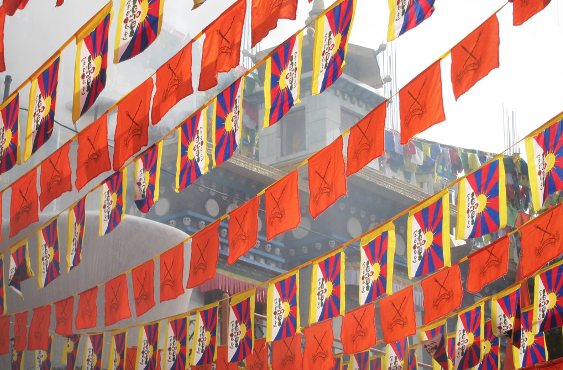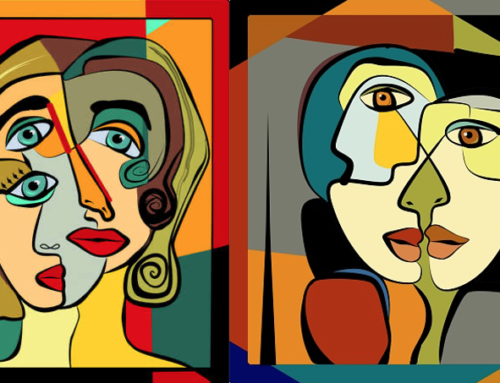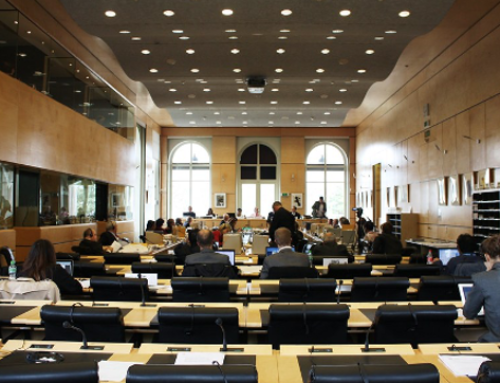Why do we use pseudonyms in ethnography? What sort of truth claims about the world are possible by using pseudonyms, and what changes when we don’t use them? Long before university research review boards required confidentiality for “human subjects research,” anthropologists used pseudonyms. Both then and now two things were at stake: (1) offering privacy and plausible deniability for research subjects, and (2) claiming ethnography to be a specific way of knowing the world. Pseudonyms are thus about truth as well as risk. Ethnographic truths take shape as both individual and collective experience; that is, while they are grounded in individual experience, ethnographic truths hold possibly true for anyone in a collective. Relations between the collectively true and the individually possible generate truths of anonymity.
Anonymity is standard in the social sciences. Both qualitative and quantitative methods anonymize data, sometimes through pseudonyms, other times through the large-scale aggregation of data. The presentation of data via aggregate percentages combines anonymization with scale. Such claims made at large scales—e.g., 60% of Black voters, 45% of Twitter users, 28% of university professors, etc.—operate differently than claims made at the level of the individual or ethnographic group. They can also socially coded as more credible and trustworthy. For some audiences, research findings via anonymous hordes generate more credibility and less anxiety than research with a series of pseudonymous individuals. Numbers rather than stories tend to inhabit the category of “data,” and research that is impersonal and distanced is valued as more “objective” and factual than relationship-driven ethnographic research (Merry 2016).1 Combined with widespread public unfamiliarity with ethnography, these subjective assessments can be hard to overcome.
Ethnography presents stories as data, and does so through research conducted at a relatively small-scale. It is knowledge gained at the level of the individual and the everyday that we then scale up to the collective and the generally human. It is in the stretch from the individually experienced to the broadly shared that we find both needs for and problems with pseudonyms. Transformations in ethnography over the last several decades include how we’ve presented the people who share knowledge with us in the field. Specifically, we have shifted from excluding individuals in our texts in favor of “common denominator” people (Marcus and Cushman 1982) to including “named individuals and characters” (McGranahan 2014). This shift marks changes in our analytical valuing of actual people in our research rather than only the knowledge they share. However, our naming of individuals and characters has been mostly through pseudonyms. Dislodging this practice is now an open question, albeit one that remains contentious within the discipline.
We are overdue for a reconsideration of ethnographic anonymity as sufficient for addressing risk or claiming truth. Changes in disciplinary ethical standards require this, as does the fact that ethnography is as much a humanistic approach as a social scientific one. In addition, individual and community desires for increased transparency and accountability in scholars’ research suggest that the privacy embedded in pseudonyms might not always match the trust placed in us as scholars. Our routine reliance on subject anonymity makes presumptions about truth and risk that are not always accurate. Pseudonyms can be risky; “real” names are not necessarily truer than pseudonyms. General claims about human experience do not require pseudonyms; we can make broad claims by using people’s actual names.
Given ethnographic methods and writing practices, how do readers assess an ethnographer’s credibility and deem them worthy of trust? In answering this question, scholars often presume the reader is another academic trained in similar conventions of method, theory, and ethics. But this is not always the case. Readers of our scholarship are not only other ethnographers. They are also scholars from other disciplines, community members, professionals, journalists, and interested people anywhere in the world. Ethnographers often take for granted the use of pseudonyms; our readers do not. Instead, for some, the use of real names is critical to the ethical production of knowledge. For such readers, pseudonyms disrupt expectations for truth and trust. As a result, a practice long fixed as normative and desirable in ethnography can unexpectedly create doubt about the validity of a scholar’s research. However, establishing credibility is not as simple as using an individual’s real name rather than a pseudonym. Part of our responsibility as scholars is explaining what it means to know something ethnographically, including why it might make sense to use pseudonyms in some situations. Our use of pseudonyms should be deliberate, rather than routine, and so too should be our decisions to use people’s real names in our writing.
Individuals and the Shared Nature of Ethnographic Truths

Tibet flags and Chushi Gangdrug army flags, Dharamsala, June 2018. Photo by author.
“She doesn’t know your mother’s name.” Pepe laughed as she told me this. It was something one of her friends had said as she looked through my book Arrested Histories: Tibet, the CIA, and Memories of a Forgotten War. Pepe, of course, knew it wasn’t true. We had known each other for twenty years; I lived with her family in Kathmandu off-and-on for five years when I was a graduate student doing research for what would first be my dissertation and later this book; and, both of her parents, their stories, and their photos were in the book. However, her father appeared in the book with his real name, but her mother did not. Why is this? And how and to whom does it matter?
Names and naming practices can be complicated. At the start of Arrested Histories, I offered a “Note on Transliteration, Names, and Photographs.” In it, I wrote the following:
- I use both pseudonyms and real names. Following anthropological convention, I use pseudonyms or subject positions (for example, a “veteran” or an “official”) in connection with ethnographic information and political opinions, and following history protocols, I use real names when presenting historical material. In those instances in which ethnographic and historic contexts converge, my use of pseudonyms or real names is based on political context (McGranahan 2010, ix).
As both an anthropologist and a historian, this felt like a reasonable compromise between disciplinary practices. It fit what I had been taught and seemed respectful given the politically sensitive nature of research about a citizens’ army that fought against the Chinese PLA to defend Tibet and the Dalai Lama, but that has yet to be fully recognized for this service. Instead, the story of this army remains controversial in the Tibetan exile community.
Delinking people’s names from their words and opinions was therefore an effort to prevent public criticism or abuse. People made statements in private they would not make in public. Sometimes in our conversations they would assess the political risk involved in speaking in their own name in print, and sometimes I as author would; both involved the nearly impossible task of assessing future risk. My tendency was to err on the side of caution, not to absolve people of accountability to their words, but to hold them, and myself as scholar, to the truths of anonymity.
Using un-attributed statements sometimes fits the shared, rather than anecdotal nature of ethnographic truths. An example is “This is the first time I’ve told my story,” which I attributed to a “veteran,” but was a statement shared with me by several other men (McGranahan 2010, 121). In contrast, an example of a politically risky statement is one “a young Khampa woman in Delhi” made to me: “The younger generation does not know resistance history. It is not taught in schools. This is because the past is controlled by the same people who control the present” (McGranahan 2010, 115). At the time, using subject identities for these individuals rather than their full names felt like the ethically correct research practice. It was also the practice that I discussed with people, explaining that they would appear in the book in three possible manners—their actual name, a pseudonym, or subject position. Some people are in the book in all three possibilities. Some appear with just their real name or subject position, such as Pepe’s late father, the veteran Lobsang Tinley. And, some appear only with a pseudonym or subject position, such as Pepe’s mother, whose name in the book is “Kesang Tsering.” While both of her parents, and many others with whom I worked on this project, regularly differentiated between historical and political knowledge, the category of ethnographic knowledge is less bounded and thus not always easy to define.
Ethnography’s expansive nature includes both history and politics, as well as experience and the cultural (rather than culture per se) in both hegemonic and renegade forms. We have tried for too long to reign in this expansiveness through a range of one-size-fits-all approaches. As the years pass, and so too have many of the individuals who appear in Arrested Histories, I am rethinking some of the disciplinary conventions to which I’ve adhered over the years.
Ethnography as a Way of Knowing
For decades, scholars in some disciplines have used pseudonyms or other identity masking devices in their research and publications. Anthropologists were trained to use pseudonyms for individuals and often for places and organizations too. The logic for this practice was that pseudonyms protect individuals such that they should not suffer negative repercussions for their participation in the research study, including for any words or actions attributed to them by the scholar. For many years, this practice was almost entirely unchallenged such that there is hardly any anthropological scholarship questioning or even reflecting on the use of pseudonyms in ethnography.2 Fieldnotes are a useful analogy for this conversation.3 The same opacity with which we present interlocutors via pseudonyms is also found in the mostly exclusive nature of fieldnotes. Anthropologists keep our fieldnotes private. While we might quote selectively from them in our writings, we do not usually circulate, publish, or even deposit them in archives for use by other scholars. Why is this? Is the knowledge embedded in fieldnotes not transferable from one scholar to another? Many anthropologists think it is not. Convention holds that the personal experience and context involved in the production (and not just recording) of fieldnotes as knowledge makes their use by other scholars awkward or problematic. But, whom are we protecting by keeping fieldnotes so private?
In a new era of ethics, transparency, and shifts in whom anthropologists are as well as whom we write for and not just about, arguments about protection do not always work. They can be paternalistic and colonial, as well as misguided in presuming a single solution to political consequences of naming and claiming, or even that a pseudonym offers sufficient anonymity. While there are situations in which people’s real names need to be obscured for valid reasons, this is not always the case. Vulnerability is not an inherent condition of all research subjects. Instead, there are often thoughtful, serious, and ethical reasons why we might use an individual’s actual name in our scholarship. These include recognizing someone’s story and contributions, honoring their wishes to be named, establishing scholarly credibility, and also acknowledging ethnography as a unique sort of knowledge in about the world.
Ethnographic knowledge is both specific and generalizable. It requires interactions with actual people whom the ethnographer comes to know, rather than anonymous individuals. As method, ethnography requires some form of “being there” such that the researcher themselves is the instrument of knowledge in an embodied, experiential sense. As theory, ethnography starts with the practices and beliefs of certain people in the world, and then opens up to questions and claims about the world in general. That is, lives lived by addicts and their loved ones in New Mexico offers insights into relations of care and the unconditional (Garcia 2010). Black women’s experiences seeking happiness in connections between the USA and Jamaica suggest both the possibilities and limits of emotional transnationalism in this particular situation and elsewhere (Williams 2018). And, Tibetan veterans’ strategies for bearing the historical arrest of their most important acts of service tell us more broadly about the contradictory truths of community (McGranahan 2010). These are not just topics of research, but are claims about the world; they are theory grown from the stories people live and tell (McGranahan 2020[2015]). The people telling the stories matter.
Ethnographic research is not replicable. One scholar cannot replicate the findings of another, even if they did the same research project with the exact same people. Instead, the credibility of ethnographic research is found in part through correspondence with other research. The ethnographic truths of one’s research should correspond with that of the existing research, even if theory and opinion of those truths diverge. However, credibility does not only rest in correspondence or in the possible truths of ethnographic claims (that is, with claims that seem as if they could be true). Credibility is also gained in the acknowledgements of an article or book, through naming mentors, funding agencies, institutions, and people, specifically the very people from whom one learned during research. These individuals, often recognized with their actual names in the acknowledgments, might only be present in the text with a pseudonym. Ironically, we gain credibility by naming in the acknowledgements individuals whose identities we obscure in our texts.
Naming Names
“You need to include their names. People need to know who they are and what they did.” Ngawang said this to me one day as she and I sat in the antiques shop she ran in Kathmandu with her husband Tachen. Tachen was a TreHor Khampa who had served in the Chushi Gangdrug army. He was also one of my favorite storytellers. I visited with him and his family frequently, mostly in the shop, but also at their home, and also saw them at community events. Ngawang and Tachen would often suggest people for me to meet with, especially older men who had never before been interviewed about their lives and service. It was in one of these moments that Ngawang told me to include their names. I did, but in the hybrid academia way of thanking everyone I spoke with by name in the acknowledgements, then using a pseudonym or subject position (e.g., “a veteran from TreHor”) for most of them in the text. Many people spoke with me about the importance of the book for the community and also of how they looked through the book to see whose names were in it.4 This was not about ego. It was about honor, recognition, and the acknowledgment of someone’s contributions to society. Seeing certain names listed or the number of names listed or so on was a means of assessing scholarly credibility. It was also about seeing the right names for people, not thinking the researcher didn’t know their correct names. This is not only an issue of accuracy or fact-checking; it is also an issue of ethnographic sensibility.
Pepe herself understood this, perhaps because “Pepe” is a pseudonym. It is the name she suggested I use for her years ago, a nickname from her school days and thus a way she is known in the world. But while it is a name not easily traceable, her identity could be determined in my twenty years’ worth of writings about her community and her family. She knows this; I know this. Pseudonyms are not always about protection. Sometimes they are about speaking truths in the world that benefit from foregrounding sentiment rather than speaker. This is one of the tensions of ethnography, of specific and generalizable knowledge, and why this essay is not an argument against the use of pseudonyms. It is instead an argument for clarity about what sort of knowledge ethnography is and about what sort of truth claims ethnography can and does make in and about the world. It is also an argument for the thoughtful, rather than default use of pseudonyms. Sometimes our claims require the naming of individuals. Sometimes individuals require that we name them. Other times, for other reasons, we choose not to use people’s real names. Each of these are ethical choices as well as methodological ones. They are choices we should make in dialogue with our research communities and not only with our disciplinary colleagues. The use of a pseudonym is not always the right ethical choice.
Truths, Trust, Honor
Tachen is not a pseudonym. This is the first time I’ve written about him using his name. In other places I call him Sherab or “a Khampa veteran” (McGranahan 2010, 2012). I now wish I had always identified Tachen as Tachen. He was proud of his service, he wanted to share his knowledge and stories, and now that he has passed away, he is not as traceable in my scholarship as he or his community or his family might like. I honor him now by naming him. I thank him. I miss him. I commit to rethinking our practices for naming and sharing ethnographic truths about the world. Knowledge grounded in the realities of people’s lives requires this to be an ongoing and relational process, rather than a fixed institutional decision. Ethnography is built on relations, and so too are the truths and the trust we seek.
Acknowledgments: For comments on this draft and thoughtful conversation about pseudonyms, I thank the wonderful faculty and graduate student participants in the “Ethnography in Progress” series in the University of Colorado Department of Anthropology, the participants in this pseudonyms project, and my co-editor Erica Weiss. For inviting me into their lives, my forever thanks to Pepe and her family, the late Tachen Chukhatsang, and the entire Chukhatsang family.
Notes:
[1] Intimate ideas of accountability to research subjects can also be important to big data scientists. In her research with data scientists in Sweden, anthropologist Alison Cool (2019) documents the often pained ways these scientists try to create ethical relationships of accountability with the actual, but unknowable people whose lives create the big data sets these scientists work with.
[2] The small number of anthropologists who have written directly about pseudonyms include Hicks 1977, Inhorn 2004, Van der Gest 2003, 2021, and Vorhölter 2021. In contrast, there is a robust literature in sociology and other social science disciplines about the use of pseudonyms.
[3] In general, fieldnotes are another underexamined aspect of ethnographic knowledge. The classic text on ethnographic fieldnotes is Fieldnotes: The Making of Anthropology, edited by Roger Sanjek (1990, updated in 2019 ) and its recent companion eFieldnotes: The Making of Anthropology in the Digital World (2016).
[4] The stark distinction in terms of community importance and recognition between the book and peer-reviewed journal articles is a topic of conversation for another time.
References
Cool, Alison. 2019. “Impossible, Unknowable, Accountable: Dramas and Dilemmas of Data Law.” Social Studies of Science 49(4): 503-530.
Garcia, Angela. 2010. The Pastoral Clinic: Addiction and Dispossession along the Rio Grande. Berkeley: University of California Press.
Hicks, George L. 1977. “Informant anonymity and scientific accuracy: The problem of pseudonyms.” Human Organization 36(2): 214-220.
Inhorn, Marcia C. 2004.”Privacy, privatization, and the politics of patronage: ethnographic challenges to penetrating the secret world of Middle Eastern, hospital-based in vitro fertilization.” Social Science & Medicine 59(10): 2095-2108.
McGranahan, Carole. 2010. Arrested Histories: Tibet, the CIA, and Memories of a Forgotten War. Durham, NC: Duke University Press.
—–. 2012. “Mao in Tibetan Disguise: History, Ethnography, Excess.” HAU: Journal of Ethnographic Theory 2(1): 213-245.
—–. 2020[2015]. “Anthropology as Theoretical Storytelling.” In Writing Anthropology: Essays on Craft and Commitment, edited by Carole McGranahan. Durham, NC: Duke University Press.
Merry, Sally Engle. 2016. The Seductions of Quantification: Measuring Human Rights, Gender Violence, and Sex Trafficking. Chicago: University of Chicago Press.
Sanjek, Roger, editor. 1990. Fieldnotes: The Making of Anthropology. Ithaca, NY: Cornell University Press.
—–. 2016. eFieldnotes: The Making of Anthropology in the Digital World. Philadelphia: University of Pennsylvania Press.
—–. 2019. Fieldnotes: The Making of Anthropology. Ithaca, NY: Cornell University Press.
Williams, Bianca C. 2018. The Pursuit of Happiness: Black Women, Diasporic Dreams, and the Politics of Emotional Transnationalism. Durham, NC: Duke University Press.
Van der Geest, Sjaak. 2003. “Confidentiality and pseudonyms: A fieldwork dilemma from Ghana.” Anthropology Today 19(1): 14-18.
van der Geest, Sjaak. 2021. “Anthropology Anonymous? Some Comments to Julia Vorhölter.” Ethnoscripts 23(1).
Vorhölter, Julia. 2021. “Anthropology Anonymous? Pseudonyms and Confidentiality as Challenges for Ethnography in the Twenty-First Century.” Ethnoscripts 23(1).
Cite as: McGranahan, Carole. 2021. “The Truths of Anonymity: Ethnographic Credibility and the Problem with Pseudonyms.” In “Rethinking Pseudonyms in Ethnography,” edited by Carole McGranahan and Erica Weiss, American Ethnologist website, 13 December 2021, https://americanethnologist.org/features/collections/rethinking-pseudonyms-in-ethnography/the-truths-of-anonymity-ethnographic-credibility-and-the-problem-with-pseudonyms
Carole McGranahan is professor of anthropology at the University of Colorado, Boulder.




